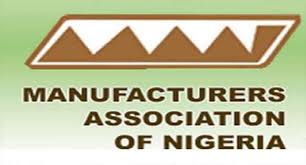
MAN Opposes 4% FOB Levy Reintroduction
The Manufacturers Association of Nigeria (MAN) has opposed plans by the Nigeria Customs Service to re-introduce the 4% Free-on-Board Levy.
Thee federal government had in February suspended the levy following a stiff resistance from the stakeholders.
The customs service said the suspension would enable a comprehensive stakeholder engagement and consultations regarding the Act’s implementation framework.
It said the timing of the suspension aligns with the exit of the contract agreement with the service providers, including Webb Fontaine, which were previously funded through the 1% Comprehensive Import Supervision Scheme (CISS) and that it presents an opportunity to review the customs revenue framework holistically.
According to the NCS, the 4% charge on the Free On-Board (FOB) value of imports is in accordance with the provisions of the Nigeria Customs Service Act (NCSA) 2023.
The NCS had projected to generate N2.84 trillion annually before the proposal was shot down by the stakeholders.
Former Senate President, Senator Bukola Saraki was one of the people who kicked against, saying it makes no sense.
He warned that importers would definitely pass the cost on the consumers who are already going through a lot, calling on the government to “urgently reconsider the policy.”
He wrote, “With our annual imports estimated at N71 trillion, the new 4% customs administration charge on Free On Board (FOB) value will come to N2.84 trillion. Does this mean that the Customs Service requires an additional N2.84 trillion annually to do its job?
“Don’t forget they already have a budget and get an incentive percentage on total customs duties collected. Now, they want to spend more than $1.5 billion on running costs in a country with the poverty index we have and with many businesses closing down. Importers will inevitably pass these costs on to consumers, further straining the budgets of millions of struggling households.”
But in a statement on Tuesday by MAN Director-General, Segun Ajayi-Kadir, the association cautioned against any planned reintroduction because “of the inevitable catastrophic impact it will have on the manufacturing sector in particular, the business community and the people of Nigeria in general.
The association viewed the development “as an unfortunate and retrogressive one,” claiming that the extensive stakeholder engagement promised had not been inclusive.
According to MAN, the overwhelming opinion of the stakeholders’ engagement would have dissuaded the Service from implementing the levy and proffered a more progressive and sustainable option for increased revenue for the NCS and government.
If implemented, it said the levy will be an additional burden to the 1% Comprehensive Import Supervision Scheme (CISS) fee being paid by its members at a time that all government agencies should be seeking ways to de-escalate the cost of doing business in Nigeria, as is being done in other climes and economies.
Ajayi-Kadir said, “It is equally worrisome that this is coming at a time when there is still a looming danger of the unwarranted 15% hike in port charges. Our members are struggling with the astronomical increase in the effective import duty calculations rate and contending with an unprecedented rise in the cost of energy.”
He reiterated that what was needed at this time was the prioritization of improved trade facilitation that would mitigate the prevailing constraints militating against the optimum performance of the productive sector.
He posited that given the prevailing economic downturn, the imposition of the levy would only exacerbate the spiraling cost of production and ultimately compound the dissipating disposable income of the average Nigeria.
“For the umpteenth time, we reiterate that the unassailable reasons why the levy should not be implemented include the following:
“The already high cost of importation due to the prevailing exchange rate used in calculating the customs duty will further escalate. This is evident in the cost which had earlier jumped by over 118 per cent from 2.07 trillion in the first nine months of 2023 to 4.53 trillion in the same period of 2024.
“The levy will cause heavy disruption in the supply chain, trigger raw materials stock-out in many manufacturing concerns, inflict higher cost of demurrage, further increase the huge volume of unsold inventories and worsen the competitiveness of Nigerian manufacturers.
“The levy is coming at a time when the headline inflation has hit a historic record of 34.8 per cent in nearly three decades and the majority of Nigerians are struggling. Therefore, the impact on the cost of locally produced items will be instant and far reaching.”
The body implored the federal government to urgently direct the Nigeria Customs Service to jettison the idea of the re-introduction of the 4% Free-on-Board levy.
